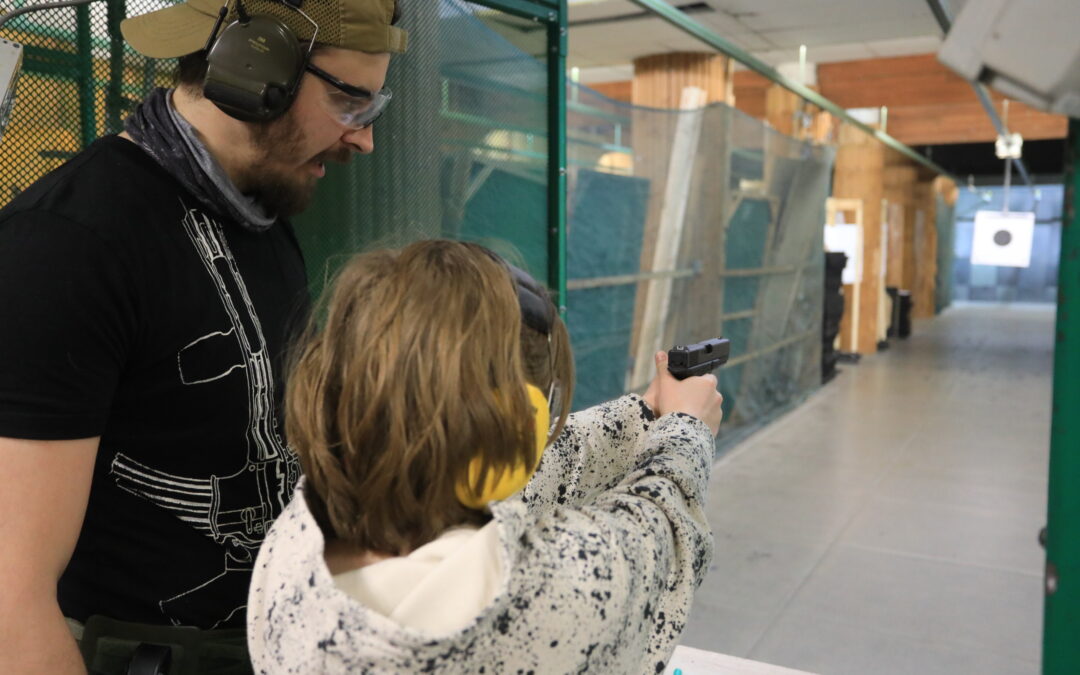Shooting ranges in Poland have seen a surge in customers following Russia’s invasion of Ukraine. Some state-owned companies have also begun providing defence training to their staff, while the country’s territorial defence force has reported a large increase in interest.
“Before the war, we trained a few dozen people a day at our facilities,” Paweł Dyngosz, president of an association that runs a number of shooting ranges, told Rzeczpospolita. “Now we have to squeeze up to 300 people into training.”
Attendance at the shooting ranges run by his Braterstwo (Brotherhood) organisation has increased by fivefold, says Dyngosz, resulting in some types of ammunition running out. At another shooting range near Warsaw, Gentleman Gun Club, customers have to wait a week or more for an available spot.
🔴 TYLKO U NAS. Polacy sięgnęli po #broń i oblegają strzelnice. Brakuje amunicji https://t.co/D6nK8xccLf
— Rzeczpospolita (@rzeczpospolita) March 24, 2022
“There has been a significant increase in the number of people willing to acquire skills that can give the average Joe a sense of security in turbulent times,” the club’s owner, Krzysztof Galimski, told Rzeczpospolita.
The newspaper also reports that a number of state-owned companies are offering defence training to their staff. These are often bottom-up initiatives, but have been given the backing of Jacek Sasin, the minister for state assets.
At least 4,700 employees of PGNiG, an oil and gas company, will receive training to improve defence and crisis-management competences, including cybersecurity and first-aid classes. Staff can also take part voluntarily in a gun handling and shooting course.
A spokesman for State Forests also confirmed to the newspaper that it is developing defence training. The state postal service, Poczta Polska, is also reportedly doing the same, though has not publicly confirmed that.
Earlier this month, Poland’s Territorial Defence Force (WOT) announced that it had seen a sevenfold increase in interest from potential recruits following Russia’s invasion of Ukraine.
Founded in 2016, WOT is the fifth military branch of the Polish Armed Forces, with around 32,000 professional and part-time voluntary soldiers. A recently passed defence law envisions the force expanding to 50,000 personnel.
The 9th Łódź Territorial Defence Brigade yesterday became the latest to receive 70 new recruits. Nearly half of them are territorial soldiers who have completed basic training, while the rest are reservists who have completed remedial training.
Recruits without previous military experience complete an intensive basic training programme including instruction in firing weapons, fire training, tactics, survival elements and first aid.
Captain Witold Sura told Wirtualna Polska that there has been increase in joining his unit, the Subcarpathian Brigade for Territorial Defence. Additional commissions have been set up for April and May to cope with demand, but he urged applicants to get in touch as soon as possible.
The Polish, Czech and Slovenian PMs today visited Kyiv – the first foreign leaders to do so since Russia's invasion – where they met with @ZelenskyyUa.
Their aim was to show the "unequivocal support of the entire EU for the independence of Ukraine" https://t.co/FzeOQLSNeK
— Notes from Poland 🇵🇱 (@notesfrompoland) March 15, 2022
Military stores have also been reporting an increase in customer numbers, with bulletproof vests being particularly sought-after, according to the National Defence League, which also says that it has been receiving large numbers of enquiries about training.
People wishing to undergo military training and wanting to buy a weapon must obtain an appropriate permit issued by the police, a procedure that currently takes up to two months.
Police data show that the annual number of weapons licences has been growing steadily in recent years. Almost 20,000 were issued in 2021, more than twice the figure from 2015.
Main image credit: Jacek Marczewski / Agencja Wyborcza.pl

Natalia Parzygnat is a contributing editorial assistant at Notes from Poland and a graduate in Multiplatform Mobile Journalism from Birmingham City University. She has previously written articles for Birmingham Eastside and featured in HuffPost UK. Natalia is a recent BJTC Award Runner Up in Social Short Video category.



















